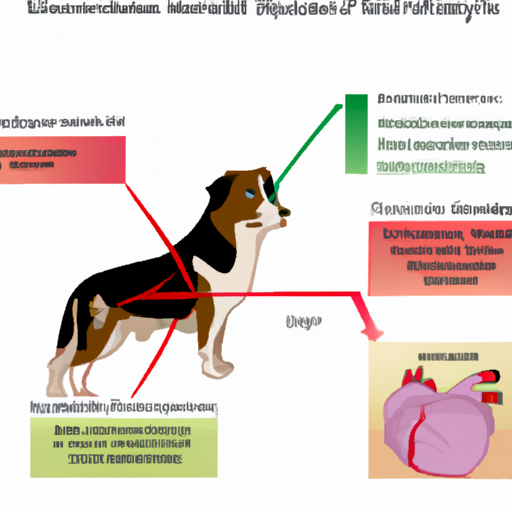As a caregiver of a furry friend, you understand that their health is of paramount importance. Today, we’re going to delve into understanding a crucial canine health issue – Dilated Cardiomyopathy (DCM). So, pull up a chair, grab a cup of your favorite warm beverage, and let’s embark on this journey of knowledge together.
What is Dilated Cardiomyopathy (DCM)?
DCM, or Dilated Cardiomyopathy, is a serious cardiac disease primarily affecting dogs. It’s characterized by an enlarged, weakened heart that can’t pump blood efficiently. This condition can lead to congestive heart failure, which could be fatal if not treated promptly. It’s like a cruel twist of fate, where the very organ symbolizing love and affection becomes the cause of concern.
The Causes of DCM in Dogs
The precise cause of DCM in dogs is largely unknown. However, several factors have been identified as potential contributors:
- Genetics: Certain breeds are predisposed to DCM, including Doberman Pinschers, Boxers, and Great Danes.
- Nutrition: Some research suggests a link between DCM and diet, particularly grain-free diets or those high in legumes.
- Other Factors: Aging, infections, and toxins can also contribute to DCM.
| Potential Contributors | Examples |
|---|---|
| Genetic | Doberman Pinschers, Boxers, Great Danes |
| Nutritional | Grain-free diets, diets high in legumes |
| Other Factors | Aging, infections, toxins |
The Symptoms of DCM in Dogs
Being vigilant about your dog’s health means recognizing early warning signs. Symptoms of DCM may include:
- Fatigue or lethargy
- Reduced appetite
- Rapid or heavy breathing
- Coughing
- Fainting or collapse
How is DCM Diagnosed?
Your vet may suspect DCM based on your dog’s symptoms, breed, and physical examination. However, DCM is typically confirmed with diagnostic tests such as:
- X-Ray or Ultrasound
- Electrocardiogram (a test that measures the electrical activity of the heart)
- Blood and urine tests
Treatment Options for DCM in Dogs
Treatment for DCM focuses on improving the heart’s function and easing symptoms. This could involve:
- Medications like ACE inhibitors or beta-blockers
- Dietary changes, particularly if the DCM is suspected to be diet-related
- Regular check-ups for monitoring
Frequently Asked Questions
Q: Can DCM in dogs be cured?
A: No, DCM is a progressive disease with no known cure. However, with appropriate treatment and care, the progression can be slowed down.
Q: Can DCM be prevented?
A: Genetics play a significant role in DCM, making it hard to prevent. However, providing a balanced diet and regular vet check-ups can help maintain your dog’s heart health.
Q: What is the life expectancy of a dog with DCM?
A: Life expectancy varies depending on when DCM is diagnosed and how it’s managed. Some dogs live many years with proper care and treatment.
Remember, your dog’s health is in your hands. Being observant, responsive, and informed is the best way to ensure they live a long, happy life.



